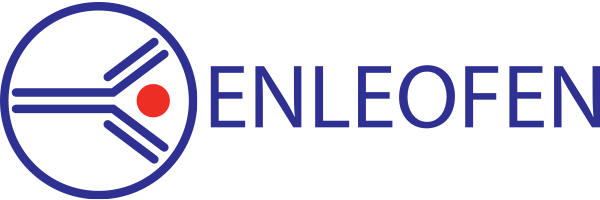Press Release – 14 Nov 2017
Publication in leading scientific journal ‘Nature’ by Singaporean research team highlights groundbreaking new target for the treatment of Cardiovascular Fibrosis
Singapore, 14 November 2017: Enleofen Bio Pte Ltd (“Enleofen”) today announced a breakthrough in the quest for novel and effective fibrosis therapies, based on ground-breaking research published in Nature, the leading scientific journal. The work, led by Stuart Cook and Sebastian Schäfer, was performed by a team of scientists at Duke-NUS Medical School (“Duke- NUS”) and National Heart Centre Singapore (“NHCS”). Cook and Schäfer are co-founders of Enleofen, a biotechnology company based in Singapore, developing first-in-class therapeutics for the treatment of fibrotic human diseases.
A protein known as transforming growth factor beta 1 (“TGFB1”) has long been known as the major cause of fibrosis and scarring of body organs, but treatments based on switching off the protein have severe side effects. The founders of Enleofen discovered that another factor, interleukin 11 (“IL11”), is even more important than TGFB1 for fibrosis and describe how they did this in todays’ article in Nature. The scientists showed that inhibiting IL11 prevents fibrosis through a wide range of pathways, putting it in the very centre of the fibrotic process. While it is surprising that the importance of IL11 has been overlooked for so long, it has now been very clearly demonstrated by this work.
“IL11 is a truly outstanding drug target for preventing fibrosis. Organ fibrosis causes deaths of many millions of people around the world and current treatment options are very limited. We believe anti-IL11 therapies will transform the treatment of patients suffering from fibrosis of the lung, heart, liver, kidneys and other organs”, explained Prof Stuart Cook.
“We are delighted to see fundamental biomedical research on cardiac fibrosis, currently supported by Singapore’s grant-funding ecosystem, now being translated toward broader clinical use by the Enleofen team”, added the Center for Technology and Development’s (CTeD) Director and Duke-NUS Vice Dean for Innovation and Entrepreneurship, Professor David Epstein.
“Coronary artery disease, hypertension and diabetes are the three most common diseases that lead to heart failure among Singaporeans, and kidney failure is an epidemic in Singapore and globally. Thus, we applaud the work that the team is doing to develop a therapeutic target that can inhibit IL11, which in future could potentially offer hope to patients with end- stage heart and kidney failure,” added Professor Terrance Chua, Medical Director, National Heart Centre Singapore.
The discovery of the role of IL11, and the early development which may lead to a novel treatment for fibrosis was facilitated by the collaboration between Duke-NUS, NHCS and the National Health Innovation Centre of Singapore. A comprehensive array of patent applications covering IL11’s role in fibrosis and products to treat fibrosis was exclusively licensed to Enleofen which is currently investing proceeds from a successful Series A fundraising into the development of novel fibrosis treatments.
CONTACT:
Enleofen Bio Pte
info@enleofen.com

